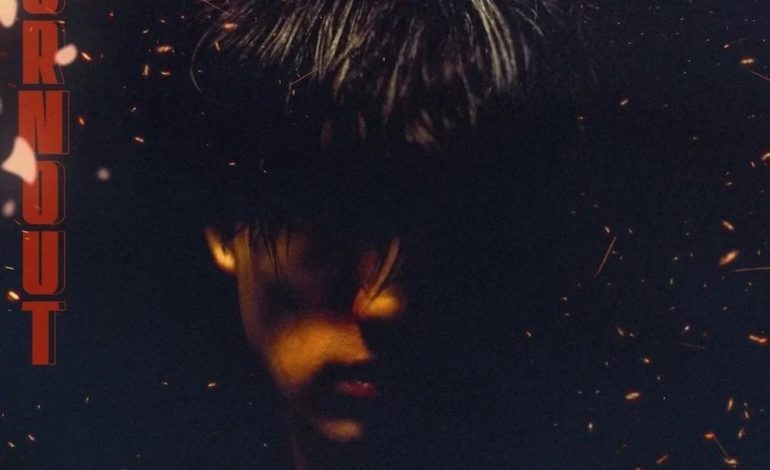

Burnout, the first and final project under the masked persona, BoyWithUke, is an ambitious exploration of self-transformation. Across 14 tracks, Charley Yang (BoyWithUke) integrates a narrative of self-discovery, heartbreak, and resilience while stepping back from his signature ukulele-driven sound. Each piece showcases Yang’s evolution both sonically and personally.
The album opens with “Can You Feel It?” a confident and energetic introduction with vibrant instrumentation that complements Yang’s introspection. It is followed by the track “Burn,” an indie rock anthem driven by drums, and Yang’s declaration to persevere. The lyrics “I won’t let it burnout” are repeated until the song comes to an end.
One of the album’s standouts, “Easier,” is a masterclass in emotional depth and production. Listeners can visually capture the feeling of isolation through the lyrics, “I live in a city full of people, but I am alone.” Its instrumentation build-ups and intricate layering make it one of the more impactful songs on the album while beautifully tying together the themes of heartbreak and self-reflection.
“Petrichor (Interlude)” is a turning point, shifting the album’s focus from self-discovery to the lingering pain of a heartbreak. The minimalist production allows for the raw emotion of the lyrics to seep through, displaying Yang’s contemplative lyricism and evoking the realization that some wounds may never fully heal. With “Corduroy” leaning into Yang’s more experimental side, the track opens up with a familiar melody that soon transitions beyond. With the idea of comfort in routine and the reluctance to step outside one’s comfort zone, this track perfectly encapsulates the push and pull between familiarity and adventure.
Listeners can taste genre-bending tendencies during tracks like “Ghost” and “Coffee.” While “Ghost” features a more guitar-centric production, the darker, more atmospheric vibe of this track brings elements of post-punk and alternative rock, making it a recognizable track on the album for Yang’s exploration beyond his usual style. “Coffee” has more electro-pop roots that incorporate a subtle blend of electronic and ambient textures. This track offers a sense of sonic variety rather than fully crossing into another genre.
The album’s closer, “Change,” serves as a farewell as well as a new beginning. With a farewell to his masked persona “BoyWithUke,” he embraces his new identity as Charley Yang. The song reflects the acknowledgment of growth from the heartaches and self-discovery Yang has undergone. The shift in sound from the acoustic ukulele of his early work to the layered alternative pop we hear now signals a bold reinvention, leaving listeners eager to see what will come next.
